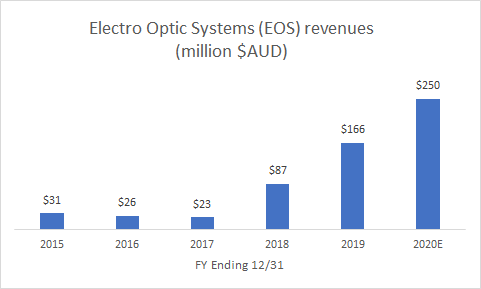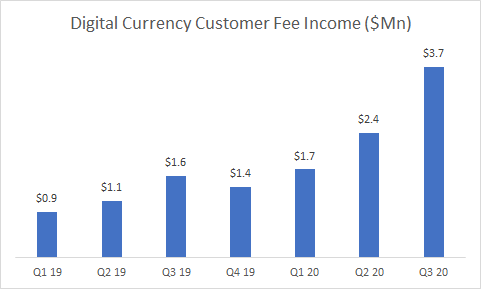In 1995 Jeff Bezos could have started Amazon by selling any product, but he chose to sell books for two reasons: 1) high number of SKUs and 2) low storage costs.
Question: What has infinite SKUs, and zero storage costs?
Answer: Expert knowledge.
A modified version of this article first appeared in Integrity Research.
What are expert networks?
Expert networks are a marketplace for knowledge.
The core product is a paid 1 hour phone call between a customer (often an investor or a consultant) and an industry professional with several years of experience.
There are variations: 30 minute calls, video calls, in person meetings, written surveys, group conferences, and more; however, the general concept is the same. Expert networks find and connect industry professionals with paying customers via paid interactions where knowledge is exchanged.
This marketplace isn’t about connecting the same industry professional to the same customer for repeat interactions. After all, one day you want to learn about X, and the next week you need to learn about Y.
This market is about connecting:
- the same customer to different experts, or
- the same expert to different customers.
(Jeff Bezos doesn’t sell the same book to the same customer either.)
Macro industry driver – the growing complexity of our world
As the world becomes more complex, existing data platforms cannot keep up – and a lot of valuable knowledge remains trapped and not written down anywhere. Not even Google can index what is in our minds (not yet anyway). Some of the most valuable data in the world is the unstructured, tacit insights in our heads.
Sometimes we don’t even know what we know until someone starts speaking to us, and the ensuing conversation leads to the synthesis of new and profound insights that are useful for both parties.
In our modern, fast-moving, and complex world, the ability to connect and speak with industry professionals becomes ever more important. And that is the value that expert networks provide.
Knowledge as a drug
Paid expert calls are an addictive product. And here is why.
In a previous job as a hedge fund investor, I used to be on the client side of these expert network calls. Even if the industry expert can’t answer my questions perfectly, guaranteed – she knows more than I do about her field. And no matter what, I will certainly learn something new and useful.
A good analogy for learning is like swimming in a magical pool. In this magical pool, you can sort of see the floor in the shimmering water, but as you dive deeper, you realize that the floor is farther than you realized, and you can never reach the bottom. Similarly, as you swim horizontally, the sides of this pool expand farther away—like a fleeting mirage.

As such, I have always walked away from expert conversations with new insights and new questions. Not only am I a satisfied customer, but the more I eat the hungrier I get.
And not only are paid expert calls addictive at the individual level, but once you start using the service, eventually your competitors have to use it too. Otherwise, they will be left behind.
Peer pressure is tough to resist.
A human-centric business model
The barrier to entry to starting an expert network is relatively low.
Not a lot of capital is required. All you really need is one employee with an internet connection.
However, there are a lot of nuances to connecting expertise as the business scales.
- We are not dealing with sterile bits and bytes of data.
- Neither are we dealing with pieces of dead trees bound together by a colorful cover.
- Rather, we are dealing with human beings & all the emotions and personalities that epitomize our species.
At their core, expert networks exist to help people communicate complex topics to one another.
Effective communication is rarely easily accomplished, and sometimes – a great deal of human hand-holding is required to establish the trust & comfort required to enable strangers to have a deep, meaningful conversation.
One can try to replicate that trust-building via technology, but such is easier said than done. As such, the traditional expert network industry is largely a human-centric, customer service business.
The demand side of the business
First, a few quick facts about the industry
- Longevity: Expert networks have been around for close to 20 years.
- Growth rate: 20%+ year.
- Size: ~$USD 1bn in annual revenue, with a few large existing players. GLG is the biggest at ~50% of the market
There is a bit of “a rising tide lifts all boats” dynamic in the expert network industry. Given the aforementioned macro trends and fundamentally addictive nature of the product, it’s a good industry in general to be in. And there are more and more new customers, non-traditional users of expert networks, such as Fortune 500s, start-ups and market research firms trying these services for the first time.
The core group of traditional expert users are investors and consulting firms, who make up 70-80% of traditional expert network demand today. And this group is well covered by entrenched market incumbents.
Here is a summary of incumbent advantages
- Affinity for the familiar – existing players have an advantage in any industry, but given the high touch nature of traditional expert networks, those advantages are particularly acute here. Users of traditional expert networks are constantly on the phone / emailing with their account managers – and over time, the relationship naturally becomes stronger.
- Price insensitivity – traditional expert network users aren’t very price sensitive. If you are making a $50 million investment, what is an extra $500 to you for a call that could make or break the deal? If you are a consulting firm, these costs are generally passed on to your end customer so price becomes further abstracted.
- Disconnect between end user and economic buyer – the person using expert networks is often an entry-level analyst. (I used to be one of them!) Sadly, any time + effort saved for junior analysts like us does not directly impact the economic decision makers. The average entry-level employee cares about personal career growth and is relatively risk averse. In general, actions that are client-facing and revenue-generating receive more visibility relative to actions that help the firm reduce expert network overhead—hence, this a dynamic that helps the incumbents.
- “No one gets fired for buying from IBM” mentality – Again this is a common enterprise sales challenge for new entrants in any industry, with multiple risk-averse departments —i.e.: legal, procurement –guarding the gates. Compliance is a particularly unique gate-keeper in the expert network world. As such, adding a new vendor is a hassle that few users have the stomach to deal with. In addition, sometimes customers of the large incumbent expert networks are forced to pay up-front for annual contracts, with credits that roll-over upon renewal—another dynamic that naturally favors the existing players.
The supply side of the business
On a positive note for 1) new entrants to and 2) customers of the expert network industry, there are few supply-side advantages for the incumbents.
Professionals are not bound by exclusivity arrangements to any network. Many experts are on multiple networks. It relatively easy for most expert networks to acquire new supply to satisfy most of their customer requests.
That is the hidden secret of the industry. Check out “The secret of how expert networks operate” for more details.
Fundamentally, industry professionals enjoy being experts for 4 reasons
- Earn easy money – it’s easy for us to talk about something that we know a lot about, especially in a 1-on-1 setting. As long as expectations are set in advance, the threshold for success can be exceeded. So from the expert’s perspective, it’s easy money, but money isn’t the only attraction.
- Feeling of power – during these calls, the industry expert is at the center of attention. They get to feel powerful and important. It’s a nice feeling—like multiple shots of dopamine over the course of a 60-minute phone call. Just as knowledge is an addictive drug for the consumers, so too is it addictive for the suppliers.
- Feeling of altruism – the core part of what experts are doing is sharing knowledge to help another individual. We human beings are social animals, genetically altered through millennia of natural selection to be inclined to help one another. Ultimately, as thousands of industry experts have told us, there is something enjoyable about sharing their knowledge that stretches beyond money and power.
- Exciting break – modern knowledge workers are intellectually curious and drawn to the new. The vast majority of the industry professionals in our network have full-time jobs. They have a daily routine, and doing a call once in a while is a nice change of pace. They are scheduled to speak with a mysterious stranger. Excitement is in the air. They have no idea where the conversation might lead. And they will likely learn new things as well.
All of these items make for a fun experience for experts and that is why the expert network business model works.
About the Author
Yishi Zuo is the former CEO of DeepBench, a tech-enabled expert network.
DeepBench’s sweet spot is serving product research divisions of VC-backed start-ups and global Fortune 1000 companies, as well as innovative design research firms like IDEO. DeepBench is profitable, growing rapidly, and hiring! inquiries@deepbench.io
If you are interested in using our services as an alternative to GLG & the big players (no annual contract, pay-as you go) – check out some testimonials from our customers who love us! and ping us at inquiries@deepbench.io.
If you would like to chat more about expert networks, please reach out directly to yz@yishizuo.com.



